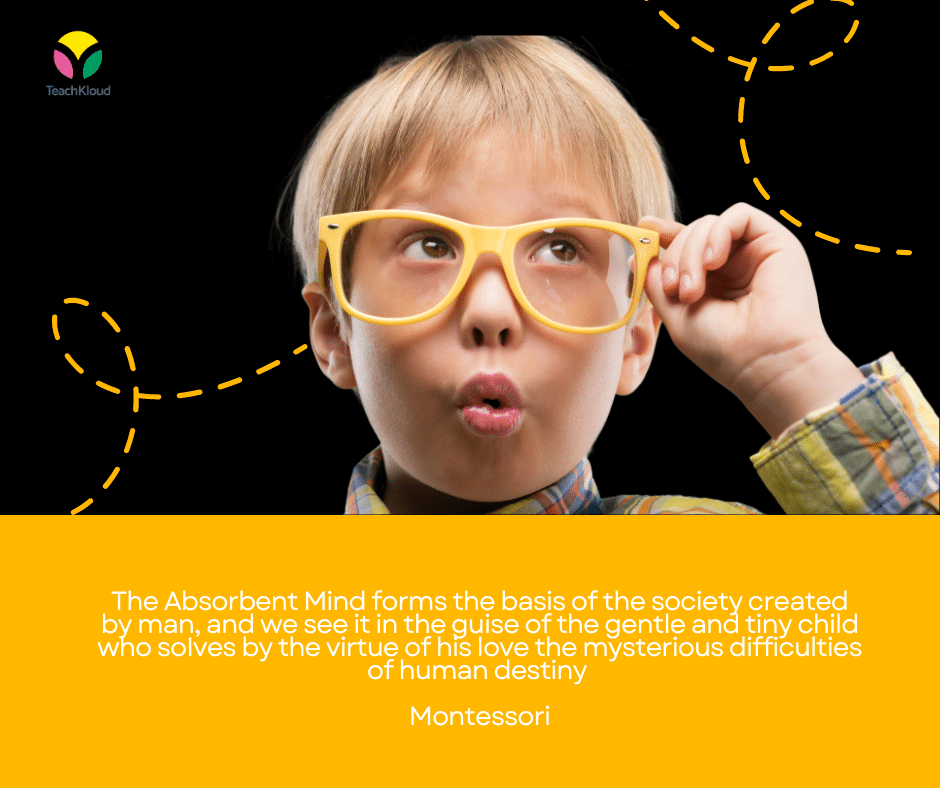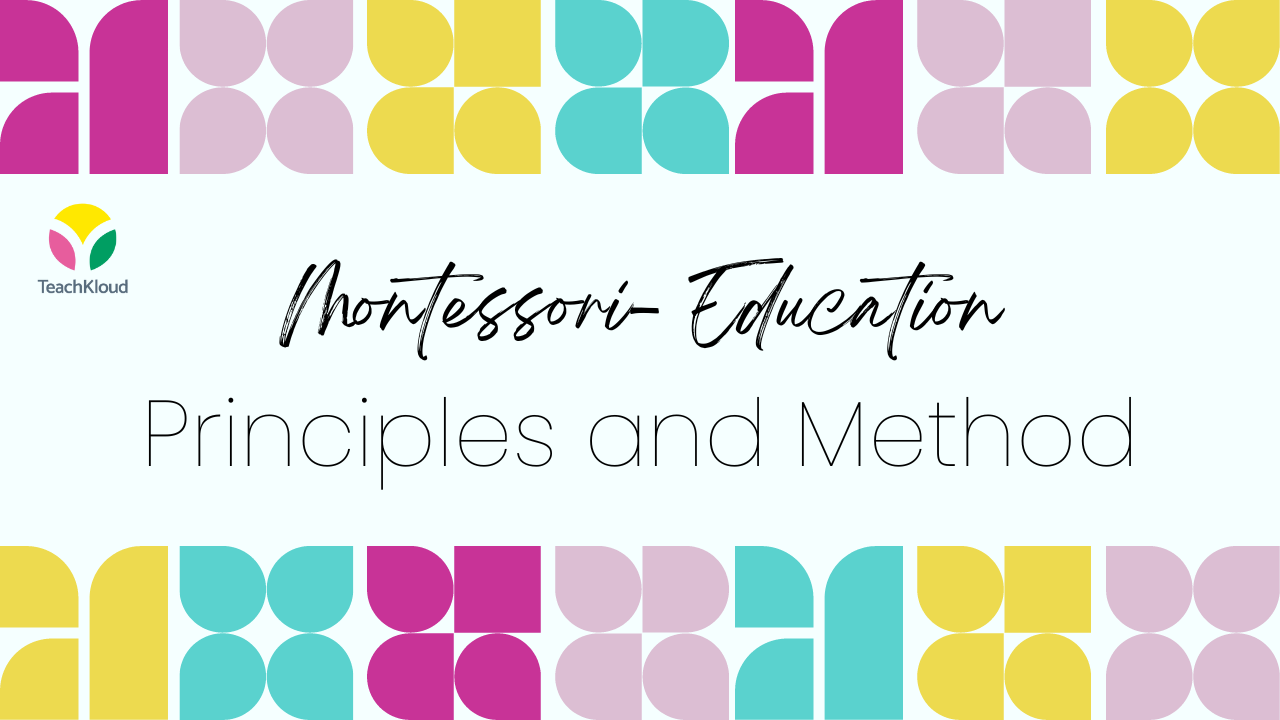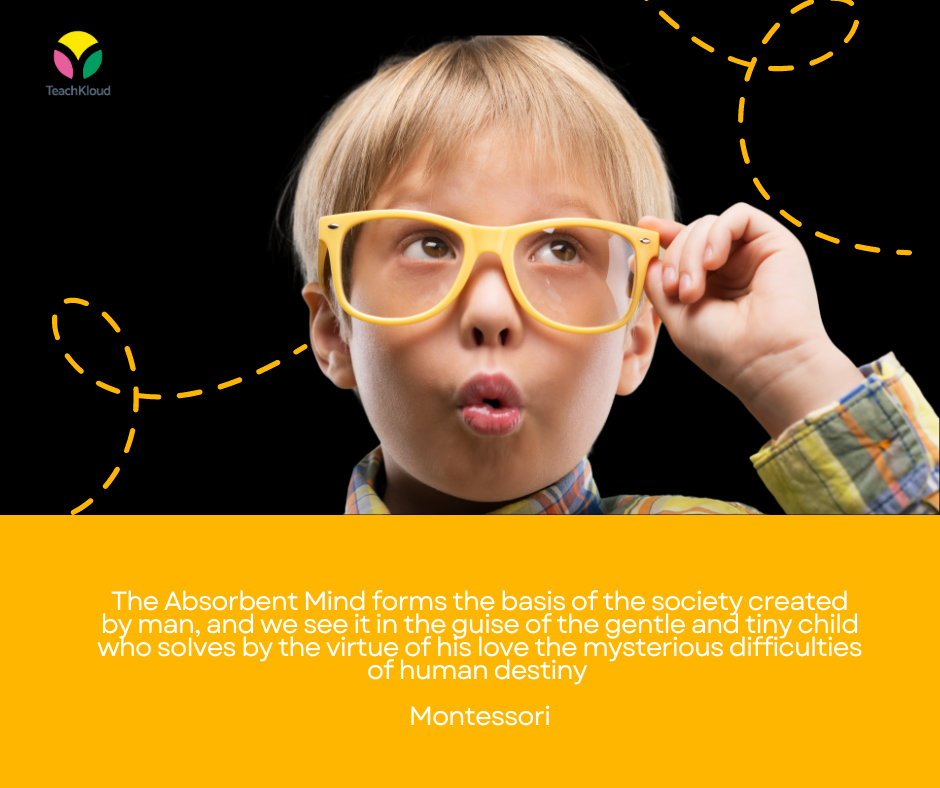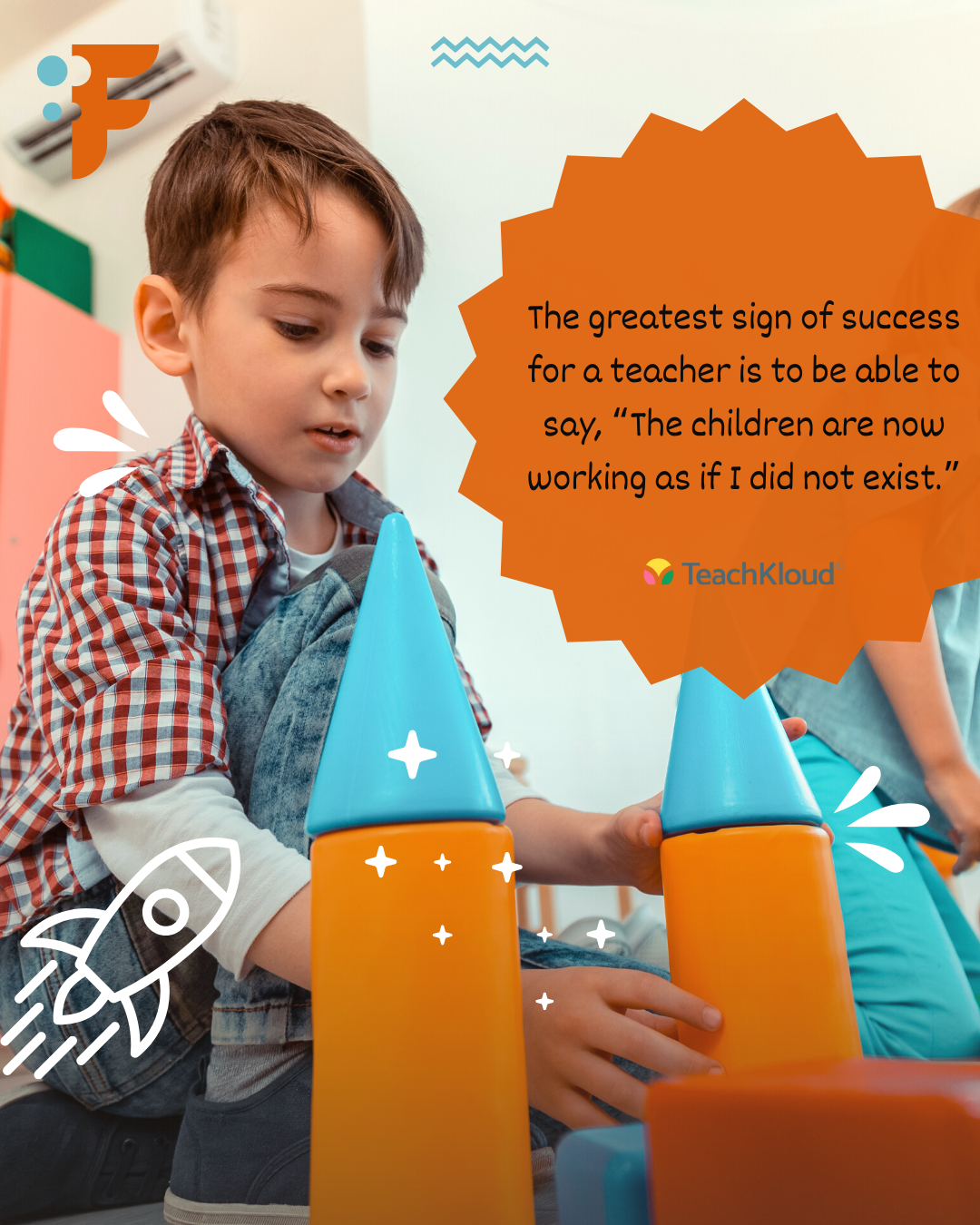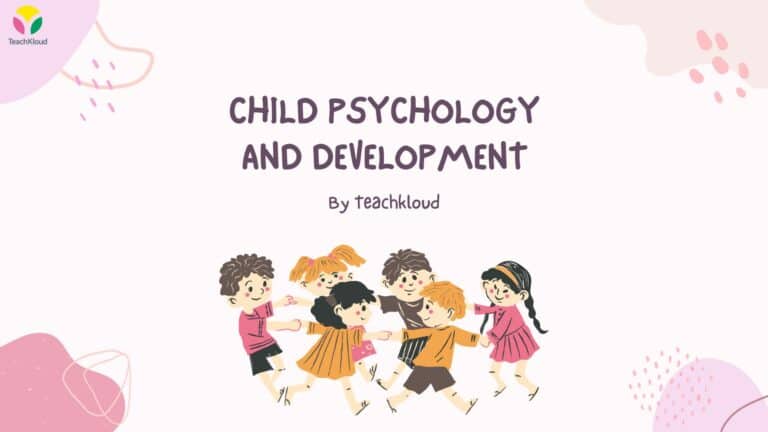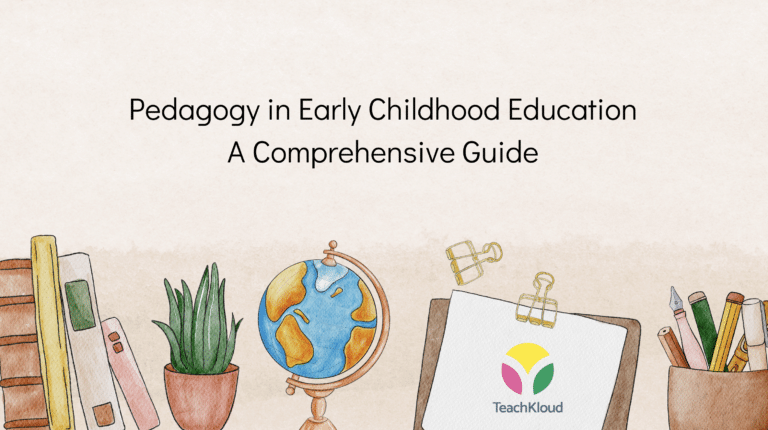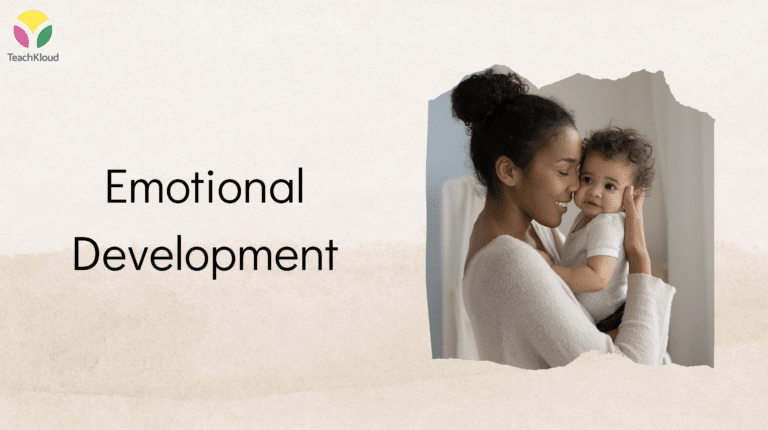Have you ever wondered, “what is Montessori education?” and why it has gained so much popularity in recent years? Rooted in a century-old educational philosophy and practice, Montessori education is a unique approach that focuses on fostering the holistic development of children, nurturing their cognitive, social, and emotional growth. In this blog post, we will dive into the world of Montessori education, exploring its key principles, the vision behind the method, and the transformative impact it can have on children’s lives.
Key Takeaways
- The Montessori Method is a holistic approach to education that emphasises self-directed learning and hands-on experiences.
- It promotes cognitive, social, and emotional development in children while providing cognitive advantages, such as individualised instruction.
- Becoming a Montessori educator requires specialised training which can lead to various career opportunities, in public and private settings.
Understanding the Montessori Approach
The Montessori Approach, a child-centered educational method, promotes holistic development in children through self-directed learning, hands-on experiences, and collaborative play in the classroom. Maria Montessori’s vision was to create a learning environment that fosters the development of the whole child, cultivating individuals who are more than just the sum of exams and rote learning.
Renowned for their beauty and harmony, Montessori classrooms offer spaces that allow children to learn and explore at their own rhythm. As a Montessori school, the importance of freedom within limits is emphasised, allowing children to develop self-regulation skills. Montessori believed in this approach to create a nurturing learning environment.
Key Principles of Montessori Education
Montessori education is founded upon certain core principles. These include respect for the child, the prepared environment, the absorbent mind, and sensitive periods for learning. The concept of respect for the child, acknowledges the individuality of each child and allows them to progress at their own pace, making choices and learning from their mistakes, in a safe and nurturing environment.
The prepared environment, another fundamental concept in Montessori education, is a carefully structured space designed to encourage self-construction and help children achieve their full potential. The absorbent mind and sensitive periods for learning refer to the idea that children have an innate ability to absorb information from their environment quickly during specific stages of their development.
These principles lay the groundwork for the Montessori philosophy, shaping the Montessori Method of education that prioritizes the child as an active participant in their learning process.
Montessori Materials and Learning Tools
Montessori materials are designed to facilitate exploration, discovery, and the acquisition of skills, enabling children to learn independently, hone their concentration and coordination. In Montessori classrooms, the daily routine is interwoven with academic skills. This allows students to learn skills in an integrated way in their natural environment. Play-based learning is an effective way to introduce early mathematics and literacy concepts. It encourages children to engage with purposeful activities and special materials that capture their interest..
The Montessori method employs a variety of materials, such as those that promote real-world skills, sensorial materials, and concrete materials for academic subjects. The structured environment promotes active learning, exploration, and investigation. Meanwhile, the instructor’s duty is to guide, observe, and foster learning within a supportive, respectful, and serene ambience. See our video series with an optional e-certificate for CPD, on using loose parts play with preschool children to support play-based and active learning!
Maria Montessori: The Visionary Behind the Method
Maria Montessori, an Italian physician and educator, is the visionary behind the Montessori Method. She developed her unique educational method based on her observations of children’s natural learning tendencies and developmental stages.
As a physician, Montessori’s background in medicine and her work with children with additional needs inspired her to create an educational approach that respects each child’s unique development. Her innovative ideas laid the groundwork for a revolution in early childhood education, paving the way for thousands of Montessori schools worldwide.
Her Background and Inspiration
Maria Montessori’s medical background significantly influenced her educational philosophy. She obtained a diploma in physics, mathematics, and natural sciences from the University of Rome and went on to work with children with additional needs. Montessori’s experiences with these children led her to develop an educational approach that would acknowledge and respect each child’s individual development.
Observations of children’s innate learning patterns and the identification of four distinct phases of development, each with unique learning styles, also guided her educational philosophy. This holistic approach to education, grounded in her medical background and experiences, became the foundation of the Montessori Method.
The Birth of Montessori Education
The Montessori Method was born from Maria Montessori’s experiences in her first school, Casa dei Bambini, where she observed the transformative effects of her approach on children’s learning and development. Established on January 6th, 1907, Casa dei Bambini provided an environment where children engaged in activities such as:
- dressing
- dusting
- gardening
- utilising various open-ended classroom materials
Montessori observed how her method allowed children to develop a sense of autonomy, collaboration, and responsibility. Today, there are approximately 20,000 Montessori programs in operation worldwide, continuing to build upon her vision and providing a unique educational approach for children of all ages.
Montessori Classrooms: A Unique Learning Environment
Montessori classrooms, through multi-age groupings and a meticulously prepared environment, sustain children’s natural development, offering a distinct learning milieu. The primary emphasis of a Montessori classroom is to promote autonomy through experiential, social, and intellectual learning experiences. See our video series with an optional e-certificate for CPD, on using loose parts play with preschool children to support play-based and active learning!
Montessori education facilitates cognitive and social development through:
- Strategies tailored to individual learning styles
- A multi-age classroom setup
- Learning materials designed to meet the cognitive needs at various developmental stages.
Multi-Age Groupings
One of the key features of Montessori classrooms is the use of multi-age groupings, with children grouped according to their plane of development. These age groupings typically include:
- Infant (0-18 months)
- Toddler (18 months-3 years)
- Children’s House (3-6 years)
- Lower Elementary (6-9 years)
- Upper Elementary (9-12 years)
This approach promotes peer-to-peer learning, social interaction and mentorship among children of different ages.
Multi-age groupings allow children to:
- Learn from and collaborate with peers of varying ages
- Foster social and collaboration skills
- Have older children serve as role models and mentors for younger children
- Have younger children learn from and be inspired by their older peers
This dynamic fosters a nurturing and supportive learning environment in Montessori classrooms.
Prepared Environment
The carefully structured environment in Montessori education caters to the developmental needs of children, providing avenues for exploration, decision-making, and independence. Montessori classrooms are meticulously structured spaces that encourage self-construction and support each student in achieving their full potential. See our video series with an optional e-certificate for CPD, on using loose parts play with preschool children to support play-based and active learning!
The environment is designed to be aesthetically pleasing and provide the necessary materials and tools for learning. By offering a carefully crafted and accessible environment, Montessori educators can foster a child’s natural desire to learn, promoting active learning, exploration, and investigation.
This unique learning environment is the cornerstone of Montessori education, allowing children to develop their cognitive, social, and emotional skills in a nurturing and supportive atmosphere.
Cognitive, Social, and Emotional Development in Montessori Education
Montessori education fosters cognitive, social, and emotional growth in children, focusing on the holistic development of the child (moral, social, emotional development, cognitive etc) to support a child who not only excels academically but has good self-esteem, identity, belonging and soci-emotional developmental skills. Research has demonstrated that Montessori students often outperform their peers in traditional schools in areas such as reading, math, and problem-solving.
Additionally, Montessori education fosters social and emotional growth, helping children develop empathy, self-regulation, and conflict resolution skills.
Academic Advantages
Compared to their counterparts in conventional schools, Montessori students frequently outshine, especially in reading, mathematics, and problem-solving. This superior academic performance can be attributed to the Montessori Method’s emphasis on hands-on learning, individualised instruction, and a carefully prepared environment that meets the cognitive needs of each child. Although, we often focus on school readiness, high quality preschool programmes support all areas of development, especially focusing on interpersonal skills, such as relationship building, resilience and confidence which are all vital not only in school but throughout the trajectory of a child’s life.
Moreover, Montessori education integrates academic skills into the natural life of the classroom, sparking a child’s intrinsic motivation to learn. By engaging with specially designed materials and activities, children in Montessori classrooms build a strong foundation in mathematics and literacy, setting the stage for a lifetime of academic success.
Social and Emotional Benefits
In addition to its academic advantages, Montessori education also fosters social and emotional development in children. By providing opportunities for children to:
- collaborate with peers of different ages and abilities
- develop empathy
- practice self-regulation
- learn conflict resolution skills
Montessori classrooms help children develop these social and emotional competencies, which are essential for success in both academic and personal domains.
Montessori education also emphasises the cultivation of executive function, particularly self-regulation, which is the foundation for confidence and independence in children. By nurturing these skills, Montessori educators help children navigate the challenges of life with resilience and adaptability, ultimately preparing them to become well-rounded individuals who contribute positively to society.
Challenges and Criticisms of Montessori Education
Despite its extensive benefits, Montessori education encounters challenges and criticisms, particularly in terms of accessibility and compatibility with traditional educational frameworks. Purely focused Montessori schools can be expensive and predominantly found in private settings, making it difficult for low-income families to access this type of education.
Additionally, students who have been educated in Montessori schools may struggle when transitioning to traditional schools, as they may not be used to structured environments and standardised testing.
Adaptability to Traditional Educational Settings
Another criticism of Montessori education is the potential difficulty Montessori students may face when transitioning to traditional schools. Since Montessori classrooms prioritise hands-on learning and exploration over memorisation and testing, students may be unaccustomed to structured environments and standardised testing found in traditional educational settings.
It is important to recognise that while some Montessori students may face challenges when transitioning to traditional schools, the skills and competencies they develop in a Montessori environment serve as valuable assets in their academic and personal lives. By fostering a love of learning, independence, and adaptability, Montessori education can prepare children for success in a variety of educational settings and beyond.
Becoming a Montessori Educator
Embarking on a journey to become a Montessori educator necessitates specialised training and a profound comprehension of the Montessori Method. As a Montessori teacher, you will have the unique opportunity to connect children to activities and experiences in a prepared environment, nurturing their natural desire to learn; promoting their holistic development.
With the high demand for Montessori educators, there are numerous career opportunities available in the field of education, ranging from teaching roles in public and private schools, to positions in specialised Montessori institutions.
Montessori Teacher Training
Montessori teacher training programs, such as those offered by the Association Montessori Internationale (AMI), provide comprehensive education in the principles and practices of Montessori education. Graduates of AMI training courses must demonstrate an understanding of:
- Educational theory
- Child development
- Observation techniques
- Utilisation and presentation of Montessori materials
The AMI diploma is highly regarded around the globe as a sign of accomplishment in a teacher-training program that is of exceptional quality, integrity, and authenticity.
Upon completion of a specialised Montessori teacher training program, you will be suitably prepared to initiate a gratifying career in Montessori education, positively influencing children’s lives and nurturing their comprehensive development.
Career Opportunities in Montessori Education
Montessori educators are in high demand, with opportunities to work in a variety of settings, including public and private schools, as well as specialised Montessori institutions. In addition to teaching roles, Montessori educators can pursue careers (often with further study) in areas such as child development research, additional needs support and research.
As a Montessori educator, you get a unique chance to leave a lasting imprint on children’s lives, cultivating their love for learning and nurturing their cognitive, social, and emotional development. With the right training and dedication, a career in Montessori education can be both fulfilling and rewarding.
Summary
In conclusion, Montessori education offers a unique and transformative approach to child development, focusing on the whole child and nurturing their cognitive, social, and emotional growth. By embracing the key principles of the Montessori Method and providing a carefully prepared environment, Montessori educators can help children reach their full potential and instil a lifelong love of learning.
While challenges and criticisms exist, the benefits of Montessori education for children are well-documented. As Montessori educators continue to shape the lives of children worldwide, they contribute to the development of well-rounded, confident, and empathetic individuals who are prepared to navigate the complexities of life and make a positive impact in the world.
